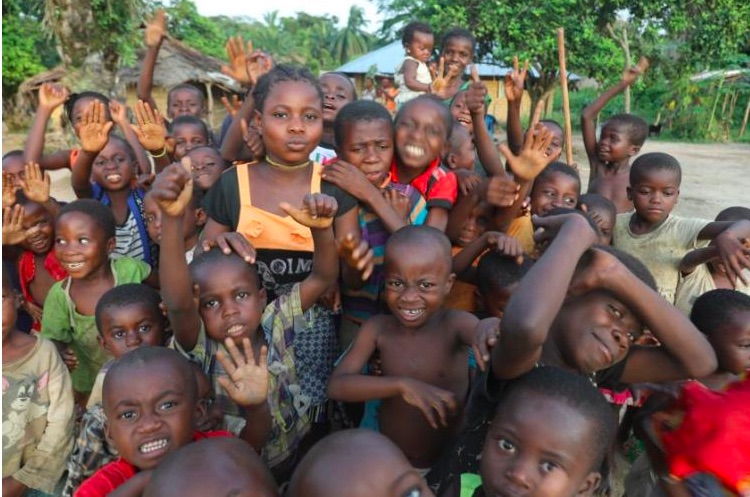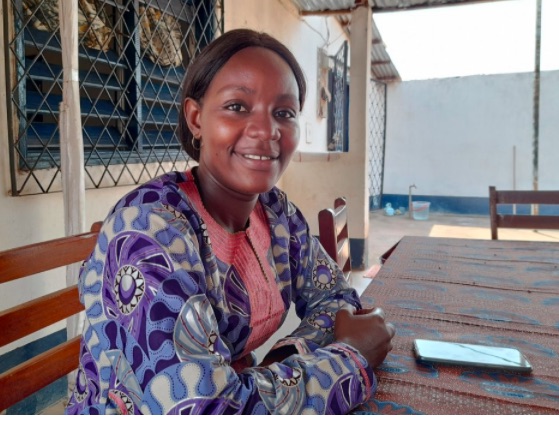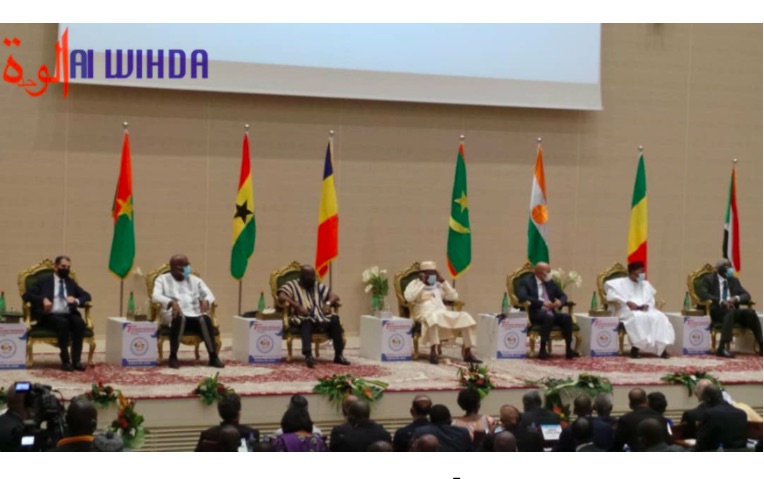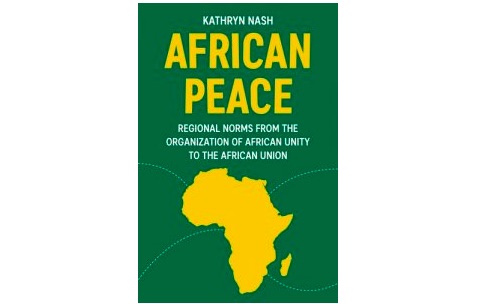. WOMEN’S EQUALITY .
An article by Alcinda Honwana from African Arguments (reprinted according to terms of Creative Commons License)
Quitéria Guirengane is a Mozambican female activist and the President of the Mozambican Young Women Leaders’ Network. Trained in social and organizational psychology, Quitéria is today one of the most prominent female activists in the country. I first met Quitéria in 2011 in Maputo, when I interviewed her during the research for my book The Time of Youth. I was very impressed by her energy and commitment as well as by the clarity with which she articulated the issues that mattered to her and her organization. I have since been following her work, and I was delighted at the opportunity to talk to her again. Below are some of the highlights of our conversation.
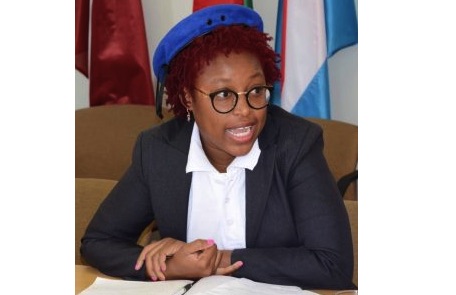
Quitéria Guirengane, Mozambican female activist and the President of the Mozambican Young Women Leaders’ Network
Alcinda Honwana (AH): Quitéria, it is a pleasure to talk to you again, albeit virtually. Thank you so much for making yourself available for this conversation. You are currently one of the most prominent young Mozambican female activists, and in the past 15 years you have been involved in various organizations, campaigns and projects. Could you talk about how you started your life as an activist, and what moves you to do what you do?
Quitéria Guirengane (QG): I became an activist in high school, when I entered a literary competition to research and write an essay about the life story of a liberation struggle hero – Francisco Manyanga. I won the competition, but I quickly realized that history was a construction, and that there are different versions of history; the official version taught to us at school was not always the ‘real’ one. This led me to question things in a way that I did not do before. At university, in 2007, I joined the Students’ Association and became the head of academic affairs, fighting for more academic support for students. In 2008, I decided to run for president of the Students’ Association, but I was taken out of the ballot because I was a second-year student, and someone higher up had decided that only third year and fourth year students were allowed to run for President. I was very disappointed, and I made clear all our community became aware of this discriminatory rule. I left the Students’ Association and was later elected to be a student representative in the University Council. Around that time, I joined an initiative outside the university. And with a group of young people sharing the same concerns as me, we founded the Parlamento Juvenil (Youth Parliament – YP) – a movement through which we created space to exercise our active citizenship. I became the head of the Gender and Sexual Reproductive Health Commission, then the coordinator of the press and communications department, and later head of the programmes of the entire organization. It is with the YP that I really blossomed as an activist: I led several successful campaigns, from monitoring elections and empowering young people to vote, to organizing leadership training programmes for youth, protests marches, and promoting political dialogues across various groups.
AH: What lessons did you learn from your involvement in all these initiatives?
QG: During this journey, I coordinated one of the largest Electoral Observation programmes of the time, engaging more than 2000 young volunteers; and in 2016 we (the YP) also established the Political Dialogue for Peace Panel, a very successful initiative which made me very proud of the work we were doing. During those years, I also came to realize that as activists we cannot just focus on the young people that join formal organizations. Many young people are concerned about politics and their futures but do not join formal bodies as some civic associations and civil society organizations may constrain their voices, willingly or unwillingly, often due to pressure for getting access to support from government institutions or from international donors. Thus, the importance of creating independent and loose networks that can mobilize a wide and diverse group of young people; it is equally important, I believe, to support the initiatives by young people from the most remote and deprived areas, in districts and localities across the country.
AH: Exactly on that point, how did you expand your work to account for the experiences of a wider and more diverse group of young Mozambicans?
QG: We had to rethink the way we were working and who we were working for. There are many youth groups and associations, formal and informal, fighting for what they believe is a better and fair society. For me, it was important to establish closer links with those other groups or individuals, especially at district level. This led me to create the Young Women Leaders’ Network, an informal network that brings together young women from different backgrounds from all over the country; we are currently building a database of young female leaders from different fields – activists, artists, community organizers, entrepreneurs, scholars, athletes and the like. Currently I am also a Commentator on Política e Liderança no Feminino, a national television show that discusses political issues of the day. With other activists we established in 2019 Nova Democracia (New Democracy – ND), a political movement of citizens aimed to promote the direct involvement of young people in politics.
The Mozambican parliament today only has about 17 percent of parliamentarians under the age of 35, which is a travesty in a country with almost 70 percent of its population under 30. So, in 2019 the ND presented a list of candidates for parliamentary elections. I was the electoral representative of ND, and in that capacity, I represented our movement in all processes and discussions about the electoral process organized by the National Electoral Commission and other official bodies. I was the first young female electoral representative in any electoral process in Mozambique. The 2019 electoral process, and the previous ones, were marked by serious irregularities, ranging from voter fraud to intimidation of candidates and voters; members of ND who were accredited to monitor the voting process in Chokwé, Gaza province, were unjustly detained by the authorities for more than a month. This was not a fair process; in the end, ND did not win any parliamentary seats. Even though we were extremely disappointed with the results, this election was a good learning experience. It motivated us to keep fighting and continue the groundwork to elect young parliamentarians in the next elections.
(Article continued in right column)
Question for this article
Can the women of Africa lead the continent to peace?
(Article continued from left column)
AH: How does the landscape of youth political activism in Mozambique look today? What are the main challenges and how are young activists responding to these challenges?
QG: In Mozambique young activists face many challenges. The youth constitute the majority, but they represent a minority in the decision-making bodies, and that’s why we keep fighting to change this situation. It will not be easy; it will take time and we need to be able to mobilize a critical mass, build broader coalitions in order to be able to effect change. There is a lot of great work being done by young people in the districts across the country against all odds. The repression of independent and critical voices by the authorities demoralizes many young people from getting involved. For example, in April 2020 Ibraimo Mbaruco, a young journalist from the district of Palma, in Cabo Delgado province, disappeared without trace after being detained by security forces. Mbaruco reported regularly on the human rights abuses going on in the war in Cabo Delgado, including violations by the government forces. Also, during the 2019 elections, the human rights activist Anastácio Matavel was assassinated by members of the government special forces. Young female activists are often victims of defamation, harassment and even rape. We know that the Mozambican youth is restless; in 2008 and 2010 there were massive protests against the government that brought the capital to a standstill. Young people were protesting lack of employment, the high cost of living and lack of political voice. Many subsequent protests have been squashed by the authorities through a mandatory registration of SIM cards to control cellular phones and SMS communications. The environment is toxic, and activists have to contend, on the one hand, with the persecution by the government, and on the other hand, they have to fight the conditionalities that are often attached to the resources offered by international donors interested to push certain political agendas. But we keep going, we keep mobilizing, we keep putting forward our views on radio and television debates and other fora.
AH: Your activism transcends Mozambique’s national boundaries. Could you share some of those experiences and the ways in which they have contributed to shape your own trajectory and interests?
QG: Yes, in 2010 I had a chance to give a keynote speech at the US State Department in Washington DC at the opening of the first African Young Leaders Forum with President Barack Obama. My speech was very critical and was well received by the audience. I was interviewed by Voice of America and my speech was also broadcast in Mozambique, sparking a debate about some of the key issues I mentioned. While some viewed my keynote as ‘washing our dirty laundry abroad’, many agreed with me that it was important to critically address the condition and the predicament facing young people in Africa today. I was very critical of the government, and the Mozambican authorities did not like it. In 2011, I represented Mozambican young women at the meeting of young African women leaders with Michelle Obama held in Johannesburg. Amongst others, I also participated in the Stockholm Internet Forum of 2013, which focused on freedom of expression, human rights and cyber security.
I am a member of various Pan-African networks and organizations such as: the Pan-African Youth Forum for the Promotion of a Culture of Peace in Africa; the Southern Africa Platform for Young Women Leaders; the African Network for the Right to Protest; and the Solidarity Network for Political Prisoners in Africa; and the Global Network of Young Women Leaders. Through these various continental and international networks, I have learned that well-structured continental-wide action can be very effective, when it engages the right players, defends coherent messages, values community knowledge, and stands-up for fair causes. This was evident in 2015 when we brought our voices together to raise awareness about the wrongful imprisonment of 17 young Angolan political activists, the ‘Revus’ (members of the Angolan Revolutionary Movement). Our campaign generated awareness about the case, exposed the regime’s abuses and, ultimately, resulted in a fair trial and the liberation of the 17 activists. We keep close links with our counterparts in other African countries, such as Angola, DRC, Tunisia, South Africa, and Zimbabwe. Just recently I had discussions with Floribert Anzuluni from Filimbi (Whistle) Movement in the DRC who also suggested I should link up with Afrikki Mwinda (a Pan-African youth movement. That brings together African activists, including those in the diaspora) through Sylvain Saluseke from Lucha (Lute pour le Changement – Fight for Change) its current leader.
AH: How can young African activists come together and address issues of systemic change? What are your views about the current youth social movements in Africa and their transformative capacity?
QG: I have a lot of hope for our generation. I think it is unjust to say that young people are apathetic and disconnected from the social and political realities in their countries. In the 1960s, during the fight against colonialism, not all young people were in the trenches fighting the oppressor, but some did, and those who did not were aware of the injustices and played their roles even if often in discreet ways. Similarly, today we cannot expect that all young people will be actively involved in the struggle. But the young activists who are engaged, they give everything: many suffer intimidation, persecution, imprisonment and sometimes death. Of course, youth constitutes a heterogeneous group, and young people are engaging in their own ways, but they are acutely aware of their marginalization and lack of opportunities. While the older generation had one clear enemy, the colonial oppressor, the challenges confronting our generations are double: on the one hand, we need to tackle our own corrupt and inefficient governments, and on the other, we have to deal with an international system which is unjust, privileges big capital and is skewed in favour of the wealthy and powerful.
Even though some progressive international forces sometimes support our movements, they often do not put enough pressure on governments, especially when they have political and economic interests. For example, it is a disgrace what is happening to Bobi Wine in Uganda, but the international community is just watching and doing very little while Museveni cracks down on dissident political voices. Also, when the 18 young activists from ND were jailed during the elections here in 2019, only a few international organizations supported us. Here in Mozambique, big capital is aligned with the government because of their interest in gas, the ruby mines, coal and other resources. Even when it is clear that elections are not free and fair, the big multinational corporations are the first to congratulate those responsible for rigging the elections.
AH: In these circumstances, how do you see the future of African youth movements?
QG: Despite the lack of support, young Africans continue to fight. Bobi Wine continues to fight; the Angolan activists, even after spending months in prison, remain active, as do the Mozambican activists who are routinely intimidated and attacked by the authorities. I have a lot of hope in our Pan-African networks such as Afrikiki Mwinda and others. Change will come from within, from us. The revolution will have to be done by the African activists, by ourselves, without waiting for the support of the international community, and beyond our corrupt national institutions. All this time, we have been playing by the rules, constituting ourselves in formal organizations, getting all the permissions to protest peacefully, running for elections and putting across our ideas; but the rules of the game, as established, are fundamentally flawed and unjust. Every time we played by their rules, we have been duped, side-lined, maimed and sometimes killed. We are getting tired and we are saying enough! The world should not be surprised if one day young people resolve to take power by force, with violence.



